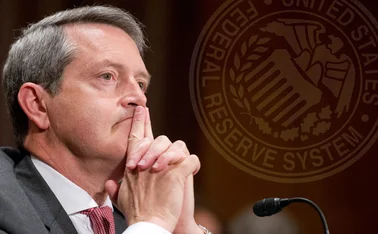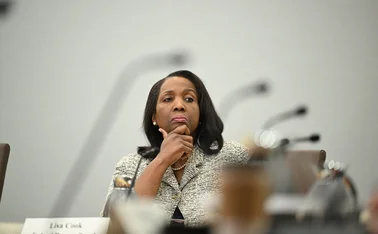
Emerging markets demand greater say in IMF affairs

More should be done by members of the International Monetary Fund (IMF) to promote the "voice and representation" of poorer countries, the G-24, a group of emerging market and developing nations, said yesterday.
A process to reform the vote and quota share allocated to emerging markets has been stuck since 2010, when the 14th review of quotas was passed. Although 135 countries, making up 71.3% of the vote share, have given their approval, 85% is needed to make the changes. A notable absentee from the list of acceptances is the US, whose 16.75% of IMF voting rights would bring the total above the required threshold or represent a blocking minority vote.
Despite the lack of agreement, the IMF has already moved on to the 15th review, with an initial review of the current formula completed in January 2013 and the 15th review due to be completed in January 2014.
A communique released following the G-24 meeting on April 18 lamented the lack of progress. "We regret that the October 2012 deadline for entry into force of the 2010 quota and governance reform was missed and that there was no agreement for a new quota formula by the review deadline of January 2013," the G-24 said.
In response, Russia's finance minister said today the G-20 had agreed that IMF reform is "taking too long", and committed to keep working toward finishing the 15th review in 2014.
The G-24 said there were "serious flaws" in the current formula, arguing quotas do not accurately reflect the weight of low and middle income countries in the global economy. The formula weights GDP at 50%, openness at 30%, variability of net capital flows at 15% and foreign exchange reserves at 5%.
Most of the weights were flawed, the G-24 said, suggesting that GDP at purchasing power parity was a better measure and the weight of GDP should be increased, while the variability measure had "shortcomings" and the openness measure "serious conceptual and measurement flaws". Reserves, however, were fine.
Monetary policy spillover
The countries also reiterated calls for advanced economies to take more notice of the spillover effects of unconventional monetary policy, which many said were driving volatile capital flows into emerging markets. "We urge the IMF and the World Bank Group to be more active in pursuing greater coherence in global economic policy-making," the G-24 said.
In a recent speech, Ben Bernanke, the chairman of the Federal Reserve, denied that the Fed's quantitative easing policies were having a net negative effect on emerging markets. He stressed that a strong US economy would be to the benefit of all, and said the evidence of volatile capital flows was mixed. He did, however, concede that the effect on emerging markets was "complicated".
Only users who have a paid subscription or are part of a corporate subscription are able to print or copy content.
To access these options, along with all other subscription benefits, please contact info@centralbanking.com or view our subscription options here: www.centralbanking.com/subscriptions
You are currently unable to print this content. Please contact info@centralbanking.com to find out more.
You are currently unable to copy this content. Please contact info@centralbanking.com to find out more.
Copyright Infopro Digital Limited. All rights reserved.
As outlined in our terms and conditions, https://www.infopro-digital.com/terms-and-conditions/subscriptions/ (point 2.4), printing is limited to a single copy.
If you would like to purchase additional rights please email info@centralbanking.com
Copyright Infopro Digital Limited. All rights reserved.
You may share this content using our article tools. As outlined in our terms and conditions, https://www.infopro-digital.com/terms-and-conditions/subscriptions/ (clause 2.4), an Authorised User may only make one copy of the materials for their own personal use. You must also comply with the restrictions in clause 2.5.
If you would like to purchase additional rights please email info@centralbanking.com







